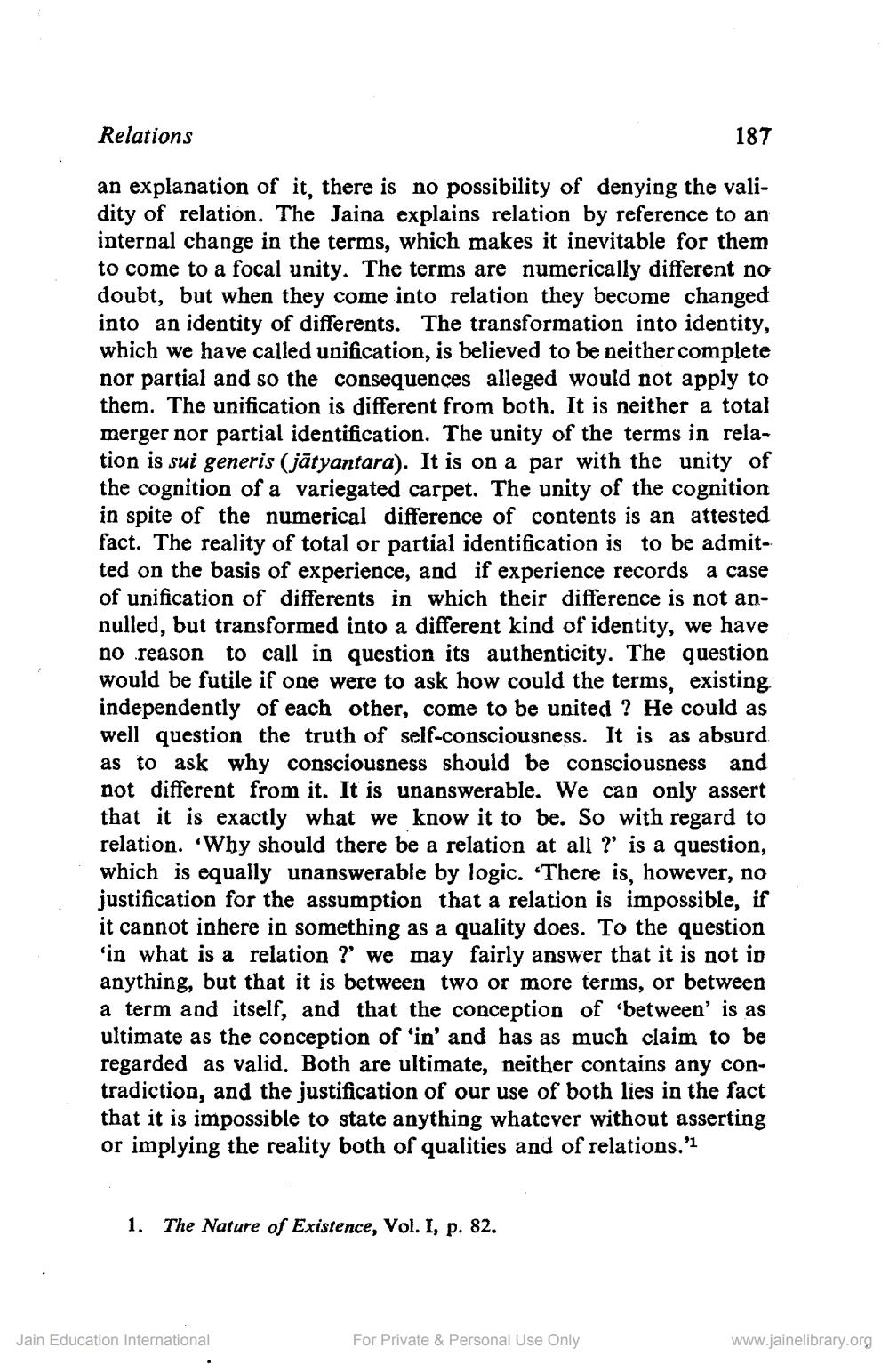________________
Relations
an explanation of it, there is no possibility of denying the validity of relation. The Jaina explains relation by reference to an internal change in the terms, which makes it inevitable for them to come to a focal unity. The terms are numerically different no doubt, but when they come into relation they become changed into an identity of differents. The transformation into identity, which we have called unification, is believed to be neither complete nor partial and so the consequences alleged would not apply to them. The unification is different from both. It is neither a total merger nor partial identification. The unity of the terms in relation is sui generis (jātyantara). It is on a par with the unity of the cognition of a variegated carpet. The unity of the cognition in spite of the numerical difference of contents is an attested fact. The reality of total or partial identification is to be admitted on the basis of experience, and if experience records a case of unification of differents in which their difference is not annulled, but transformed into a different kind of identity, we have no reason to call in question its authenticity. The question would be futile if one were to ask how could the terms, existing independently of each other, come to be united? He could as well question the truth of self-consciousness. It is as absurd as to ask why consciousness should be consciousness and not different from it. It is unanswerable. We can only assert that it is exactly what we know it to be. So with regard to relation. 'Why should there be a relation at all ?' is a question, which is equally unanswerable by logic. There is, however, no justification for the assumption that a relation is impossible, if it cannot inhere in something as a quality does. To the question 'in what is a relation?' we may fairly answer that it is not in anything, but that it is between two or more terms, or between a term and itself, and that the conception of 'between' is as ultimate as the conception of 'in' and has as much claim to be regarded as valid. Both are ultimate, neither contains any contradiction, and the justification of our use of both lies in the fact that it is impossible to state anything whatever without asserting or implying the reality both of qualities and of relations."1
1. The Nature of Existence, Vol. I, p. 82.
Jain Education International
187
For Private & Personal Use Only
www.jainelibrary.org




